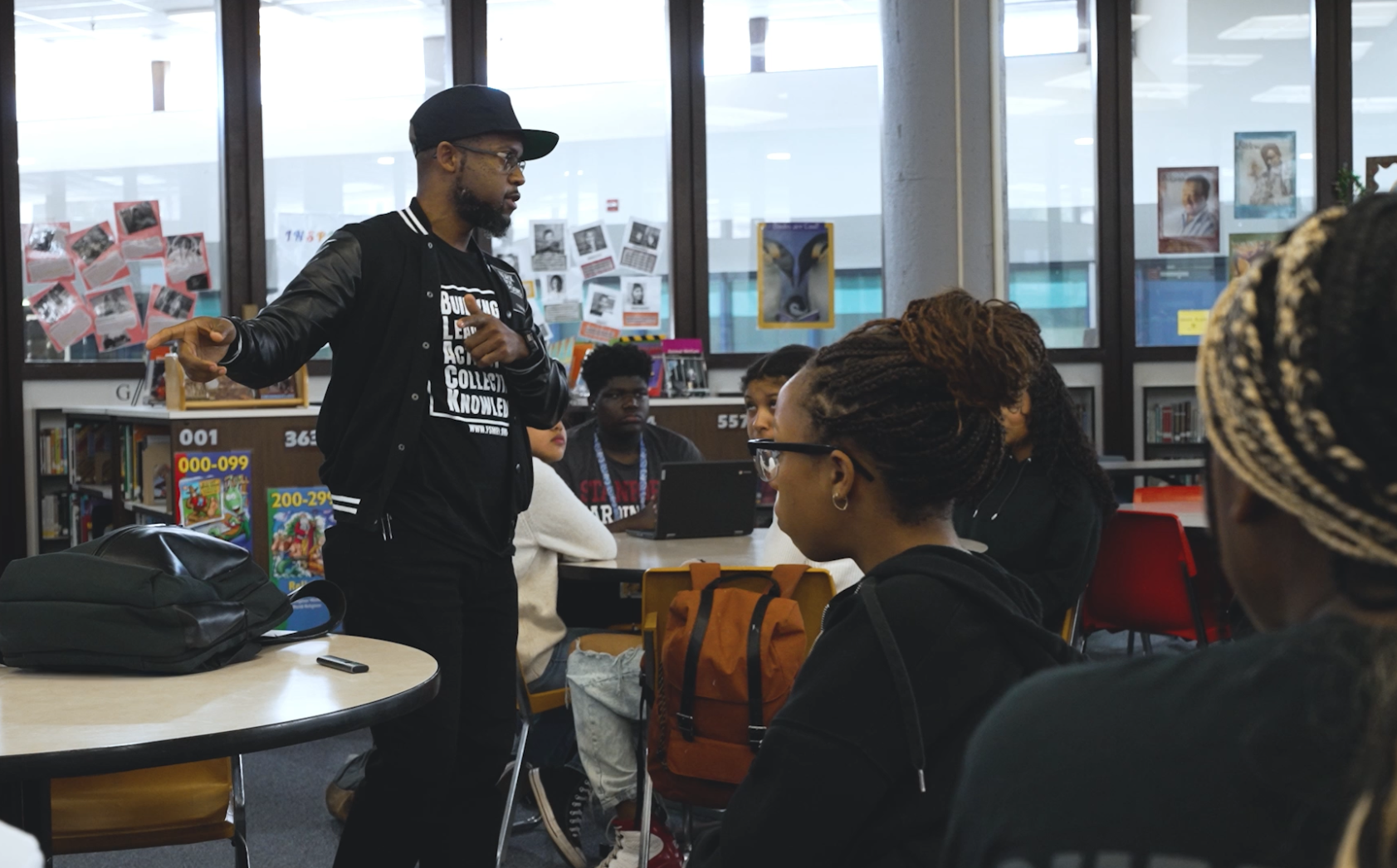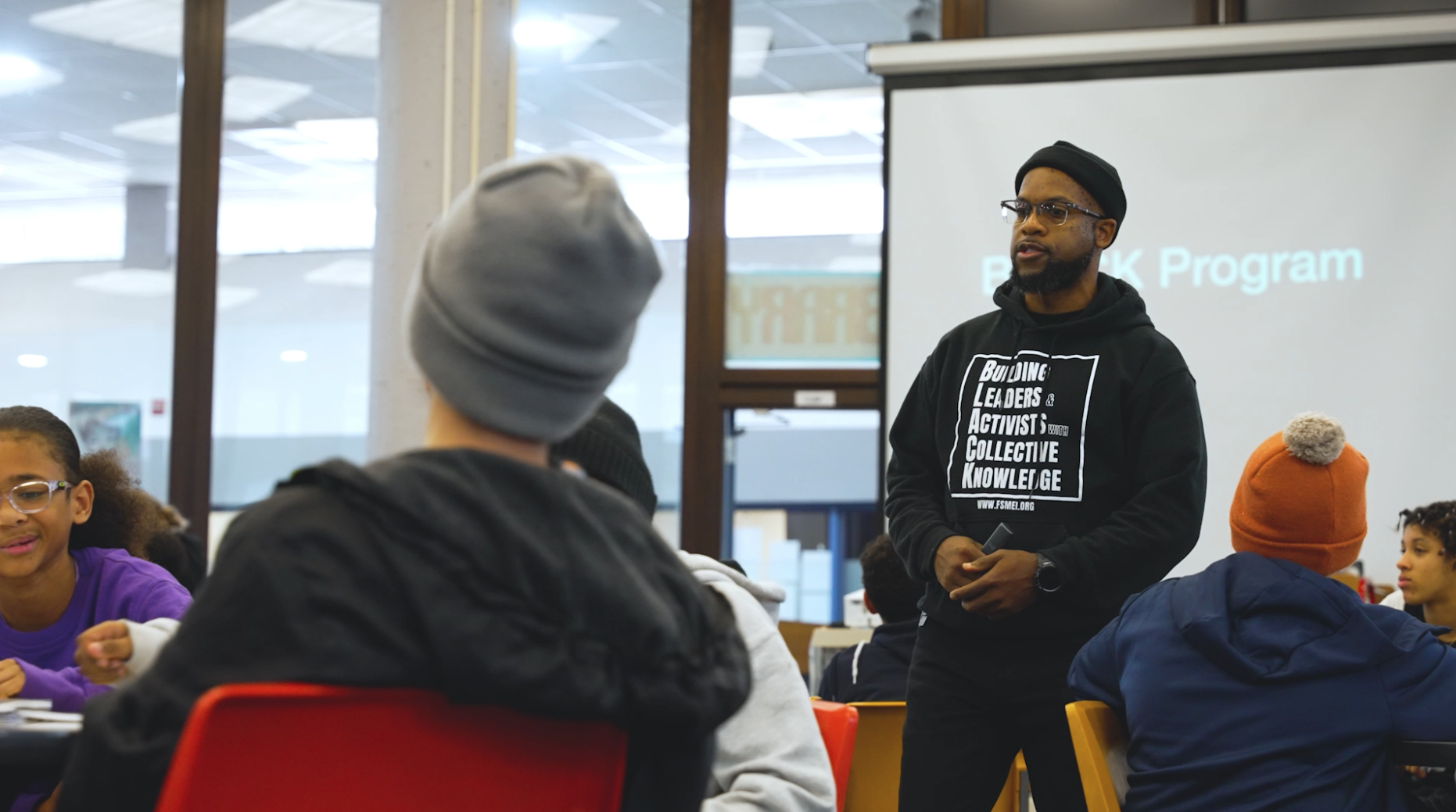When Tyson Amir wrote his 2016 book Black Boy Poems, he did so with the intention of assisting African American kids in their pursuit of education.
It’s the same reason he started leading classroom workshops in the South Bay, discussing current events and history alike. And on the heels of the pandemic, as students returned to the classroom, teachers and administrators in several school districts noticed an increase in racist behavior, specifically directed at African American students.
Now, Amir is the subject of a short film about his work, Black Impact: The Leaders We Build, which screens Friday, May 16 at the New Parkway in Oakland as a part of The Revolutionary Visions Film Festival.
Directed by AM1, the film centers on a 2023 anti-racist resolution at Bernal Intermediate School in San Jose. After it was implemented, it spread across San Jose’s Oak Grove School District and around the Bay Area.
Amir believes this work is a model response to an nationwide issue. Last year the Department of Justice reported that, from 2018–2022, Black students were the most likely to be victims of hate crimes in schools.

The year before, a UCLA survey of 150 California principals showed that two-thirds reported instances of racist statements being directed at Black students — more than any other racial demographic by far, despite making up just five percent of all California public school students.



